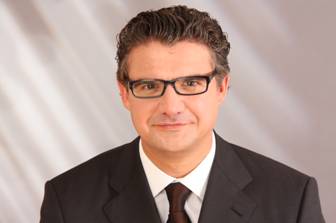Forecasting continues to be a hot topic. My recent interviews with Steve Morlidge continues to be very popular. Also, ‘Franz the Frog’ sparked some interesting discussions behind the scenes. Given the strong interest in these topics, I reached out to a friend who has spent a lot of time and effort driving solid forecasting processes.
 Please meet Ulrich Pilsl. He provides a different perspective. Ulrich currently works as an Interim Manager in Munich. He spent over 14 years at Softlab / BMW Group (later Cirquent / NTT Data Group). As a member of the executive board, he held different senior executive positions including CFO of a consulting subsidiary and as the Head of Controlling & Business Administration.
Please meet Ulrich Pilsl. He provides a different perspective. Ulrich currently works as an Interim Manager in Munich. He spent over 14 years at Softlab / BMW Group (later Cirquent / NTT Data Group). As a member of the executive board, he held different senior executive positions including CFO of a consulting subsidiary and as the Head of Controlling & Business Administration.
Christoph Papenfuss: Forecasting is a key focus area for many finance professionals. But many organizations are struggling to obtain an objective view of the future. What are some of the key problems?
Ulrich Pilsl: The biggest problem I see is complexity. Many companies have bloated processes that are too detailed. It simply takes too much time and people have a hard time differentiating between what is important and what is not. There is no clear focus. Also, management tends to have a hard time managing the process. My advice is to simplify and to get rid of excessive detail. More detail does not create more accurate forecasts. On the contrary: the more detail, the less accurate forecasts tend to be for the above mentioned reasons.
Christoph Papenfuss: What is the main problem with inaccurate forecasts?
Ulrich Pilsl: Inaccurate forecasts lead to a serious confidence problem. Shareholders don’t like surprises. It gets worse when surprises are caused by poor forecasting efforts.
Christoph Papenfuss: Are positive and negative errors equally problematic? Let’s take a look at a typical sales or business forecast. Some people tend to create very conservative forecasts and often end up outperforming. Isn’t this better than creating a very ambitious forecast and then coming in lower?
Ulrich Pilsl: This is an interesting but common situation. First of all, positive and negative errors are equally problematic. Both type of errors can create serious management challenges apart from the already discussed confidence problems. In regards to this specific situation, one might be tempted to say that it is a good thing for a sales person to continuously beat his or her forecast. However, this can create some serious challenges. Let’s take a look at a consulting company. Low sales forecasts indicated low resource requirements. Hiring efforts might be slowed down and the business might quickly end up in a situation where they do not have enough talent available. Business is lost. Customers might loose confidence in us as a trust-worthy business partner. I therefore strongly believe that both negative and positive errors require serious attention.
Christoph Papenfuss: What should the Controller do to help minimize forecast errors?
Ulrich Pilsl: The Controlling department should show some ‘tough love’. They have to challenge the departments to deliver realistic forecasts. We found that it is critical to provide suggestions and to jointly develop scenarios with the business managers. Finance basically acts as a tough but fair coach in the process. This continues in the the monthly and weekly management meetings: We openly discussed the forecast results and challenged the numbers. It is obviously the job of the Business Controller to moderate this process. Last but not least, we found that it sometimes makes sense to create top-down adjustments that reflect upside and downside risk.
Christoph Papenfuss: Based on your experience, does it make sense to measure forecast accuracy? If yes, how often and at what level did you measure accuracy?
Ulrich Pilsl: It depends on the organization. This reminds me of a quote by my former manager who said: “Most companies are over-controlled but under-managed.” A team that understands the value of a forecast will usually deliver solid forecasts. Measuring forecast accuracy won’t necessarily improve it. I do believe, though, that it makes sense to measure it if the organization has challenges with the forecast process. Especially in the case of a management team that does not see the value in the forecast. It might make sense to add an accuracy target to the annual objectives. We had a variable goal “internal quality”. This allowed us to substantially change the mindset of some managers. The goal was set once per year.
Christoph Papenfuss: How do you utilize forecast accuracy measures? Should you communicate the numbers to the organization or is this something that should stay within the walls of the finance department?
Ulrich Pilsl: In my opinion, it does make sense to communicate forecast accuracy to the management team. But it makes no sense to communicate it to the whole organization. The aim is to improve forecast quality and not to blame the management in the organization.
Christoph Papenfuss: What can Finance do to help create a culture where people are happy to create meaningful and objective forecasts?
Ulrich Pilsl: Finance simply has to be the role of a coach and consultant for the business. It is our role to educate and to support the business.

Comments
4 responses to “A discussion about forecast errors”
Excellent article, thank you
There interviews are interesting, I’m wainting for more to come.
Thanks, Jaromir! Appreciate your feedback. More to come soon. Hope all is well in Prague.
Very Interesting! i am doing research for a treatise in this area and would love to see more about the role of finance department in co-ordinating and improving the budgeting & Forecasting process.